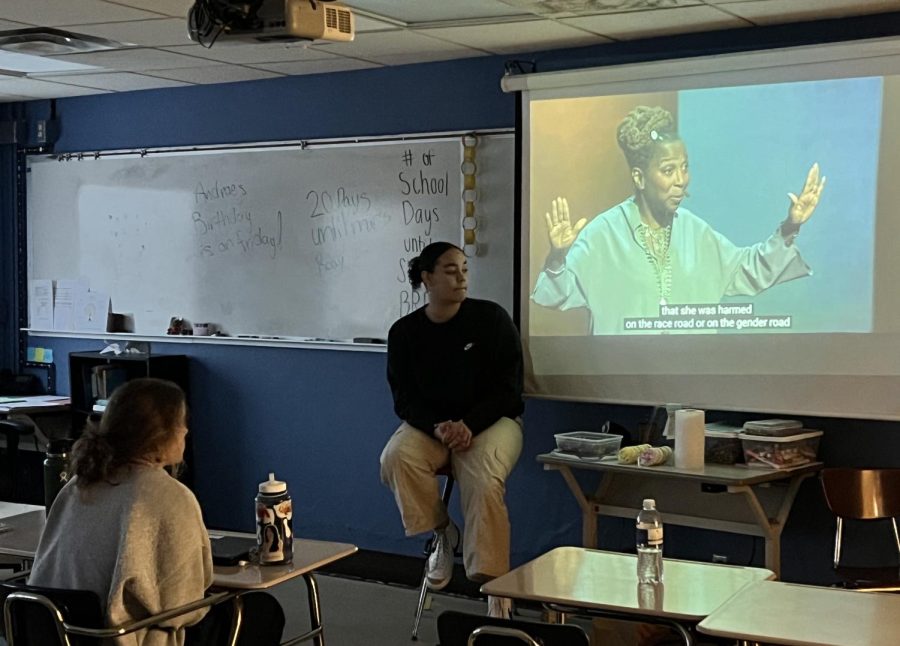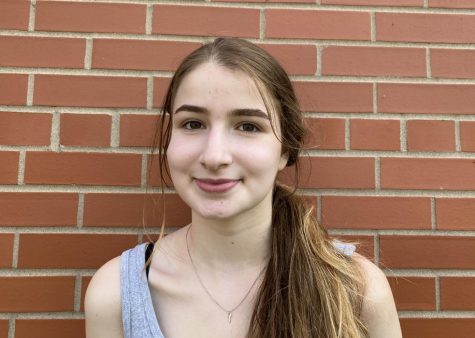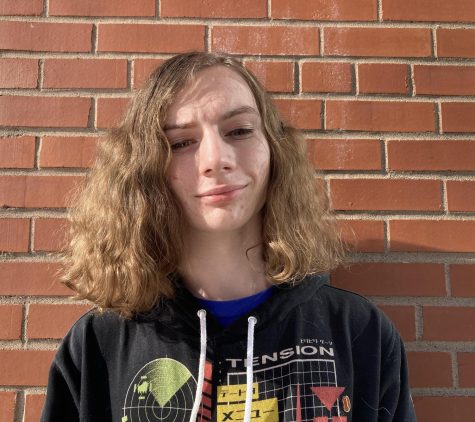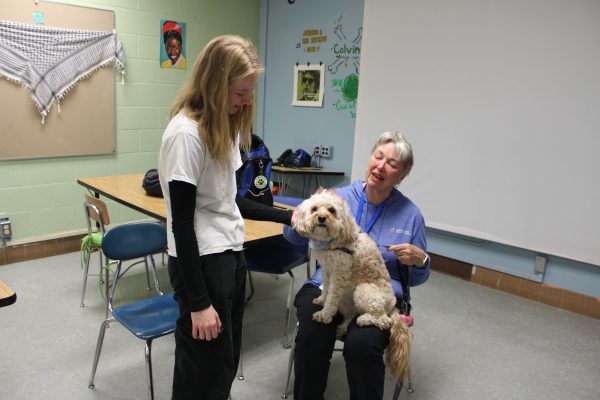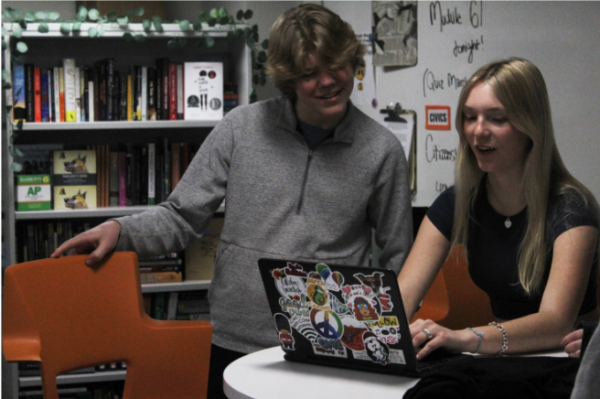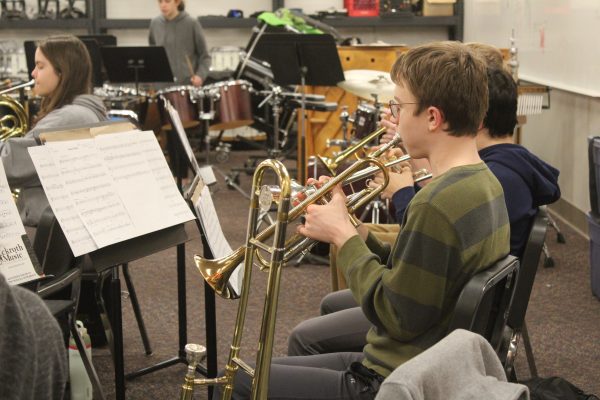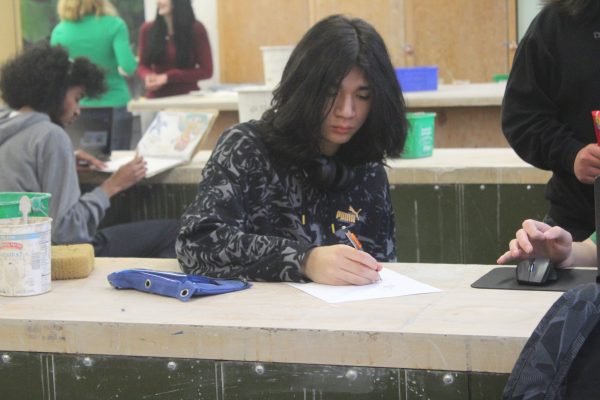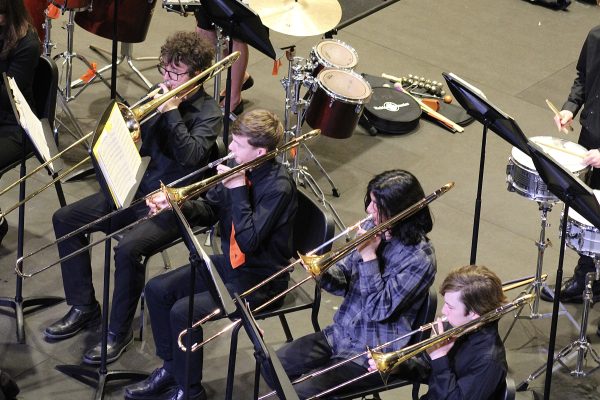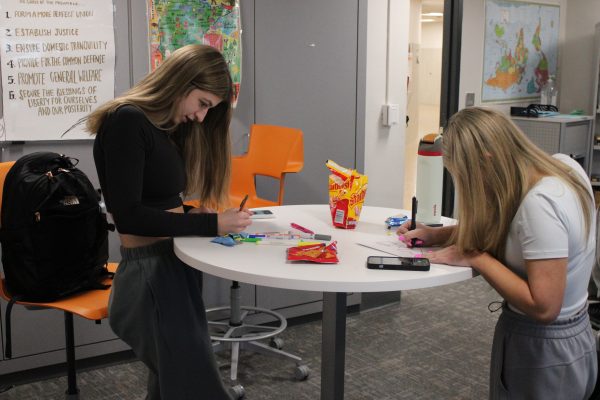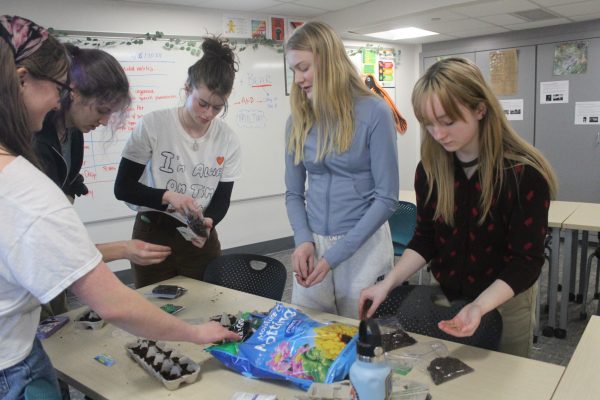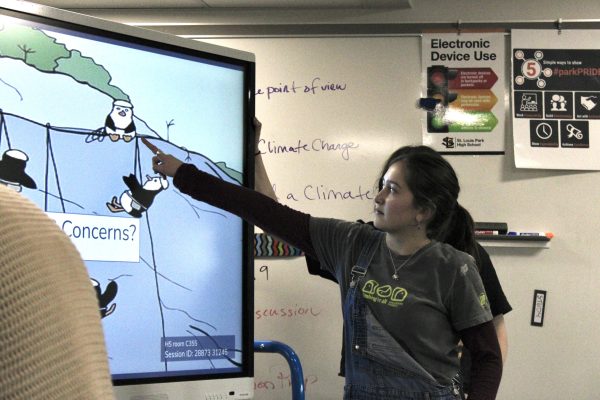Girls United talks intersectionality
Club discusses crossroads between sexism and racism
Sophomores Sela Myers and Alicia Mainjeni watch a Ted Talk about intersectionality March 16. Girls United met to have a conversation about the intersection of racism and sexism.
March 20, 2023
Girls United met March 16 to hold a space for discussion about intersectionality and Black feminism. According to club adviser Julia Germain, it’s crucial to educate students about this topic.
“We don’t really have any systems in place that allow us to look at people’s intersecting identities and how they are impacted by those,” Germain said. “It’s important to introduce a new way of understanding all of our unique experiences as individuals.”
According to sophomore and Title IX coordinator Sela Myers, the feminist movement has a history of advocating solely for white women.
“Historically, feminism has focused too much on White women, when in reality it’s all women,” Myers said. “It’s really important to highlight those that are being discriminated against.”
Freshman Dalia Falck said everyone must learn about the challenges facing women of color.
“It’s important to educate people about how women of color are doubly impacted by racism and sexism, and how it’s more difficult for them to get jobs and they face a lot more challenges,” Falck said.
According to Germain, it’s essential to know all aspects of someone’s story in order to truly understand them.
“I don’t think you can really understand someone’s experience by just focusing on one identity or one system of oppression, but instead looking at how they all are intersecting,” Germain said.
According to Myers, the only way for society to learn and improve is by continuing to have conversations.
“The only way people will compromise (is) if they hear people’s point of views and sides of stories, and if they actually listen to other people and what’s going on,” Myers said. “Because that just doesn’t happen, and like we said in the discussion earlier, there’s this White supremacy that holds down this whole country.”
Germain said that talking about the experiences of people of color is essential for educators so that their students feel heard and represented.
“It’s really powerful to hear from a Black woman and her experiences,” Germain said. “Especially me being a teacher who’s a White woman, it’s really important to bring in perspectives that can also reflect the identities of my students and give them these perspectives.”



